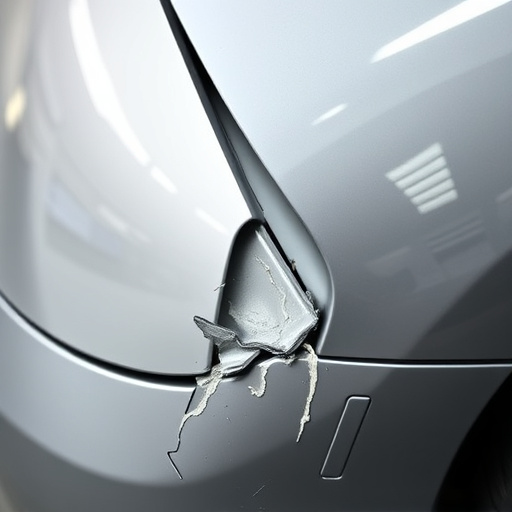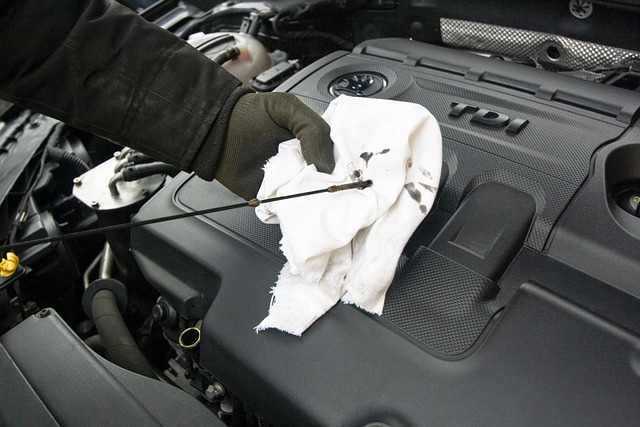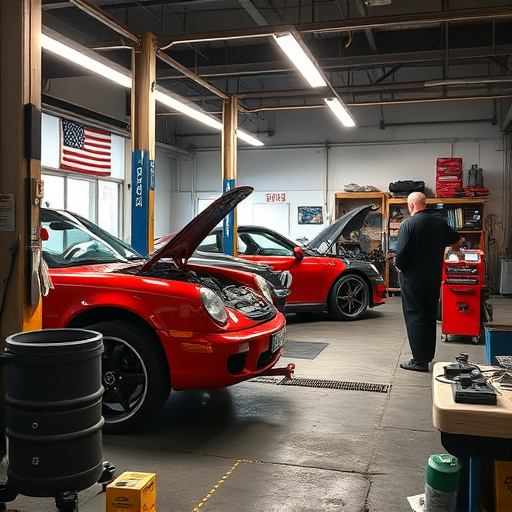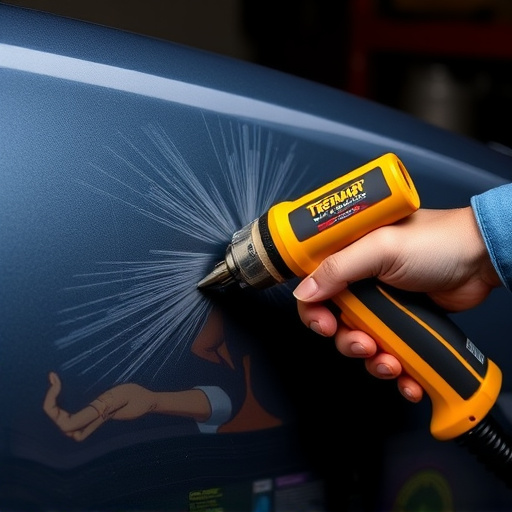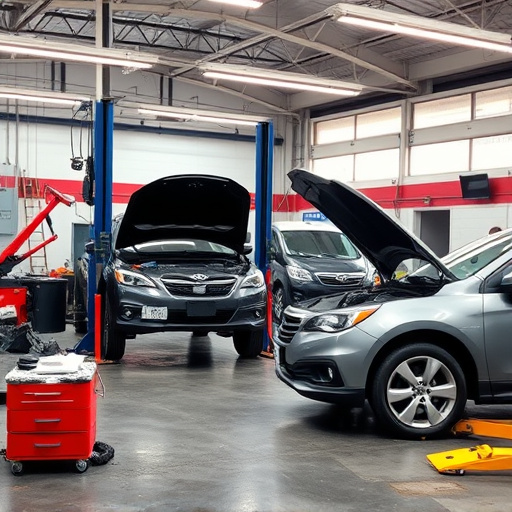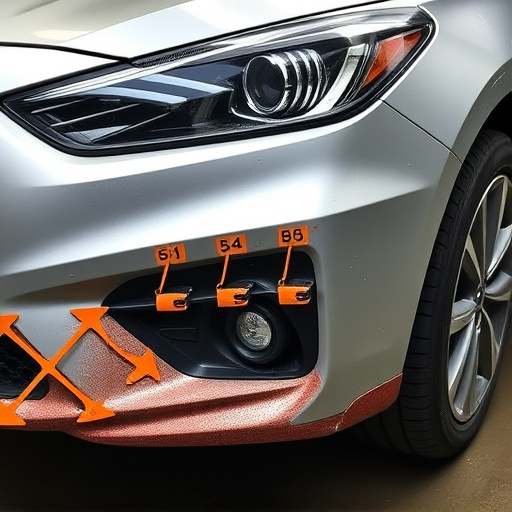Collision center warranties are legal agreements ensuring quality and transparency in car collision repairs by defining covered services, exclusions, and claim procedures. These safeguards protect businesses and consumers, promote trust, and enable effective dispute resolution through clear rights and responsibilities outlined in the warranty.
Collision center warranty agreements are a crucial aspect of the automotive repair industry, offering peace of mind to customers. This article delves into the intricate legal considerations that shape these agreements. We explore how contracts are structured to protect both businesses and consumers, focusing on consumer protection laws. Additionally, we navigate potential disputes by highlighting rights and responsibilities, ensuring fair practices in collision center warranty claims. Understanding these legal aspects is essential for both repair shops and customers alike to ensure satisfaction and maintain a positive relationship.
- Understanding Collision Center Warranty Agreements
- Legal Aspects: Contracts and Consumer Protection
- Navigating Disputes: Rights and Responsibilities
Understanding Collision Center Warranty Agreements

Collision center warranty agreements are integral to the automotive industry, particularly for businesses offering car collision repair and automotive repair services. These agreements serve as a legal framework, outlining the terms and conditions under which a collision center provides warranty coverage for their work. By understanding these warranties, both service providers and consumers can ensure fair practices and protection.
A typical collision center warranty guarantees the quality of their car paint services and structural repairs for a specified period. This means that if a client discovers defects or issues with their vehicle after the repair, they have recourse under the warranty. The agreement details what is covered, exclusions, and the process to file a claim, ensuring transparency and accountability in the event of any complications arising from car collision repair procedures.
Legal Aspects: Contracts and Consumer Protection
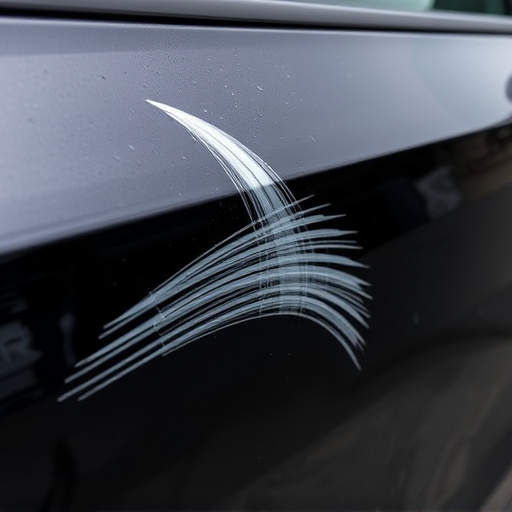
When it comes to collision center warranty agreements, legal considerations are paramount. These contracts serve as a cornerstone for ensuring consumer protection and fostering trust between auto repair shops, like Mercedes Benz repair centers, and their clients. Each warranty should clearly outline the scope of services covered, including car paint services, parts replacement, and labor costs. Transparency in these agreements is crucial to prevent disputes and ensure customers understand their rights.
Moreover, legal aspects of collision center warranties protect both parties from potential liabilities. Consumers benefit from guaranteed repairs, while auto repair shops establish clear guidelines for service delivery. This structured approach not only streamlines the warranty process but also safeguards against fraudulent claims. As a result, clients can have peace of mind knowing they are receiving quality car paint services and repairs within the confines of a legally sound agreement.
Navigating Disputes: Rights and Responsibilities
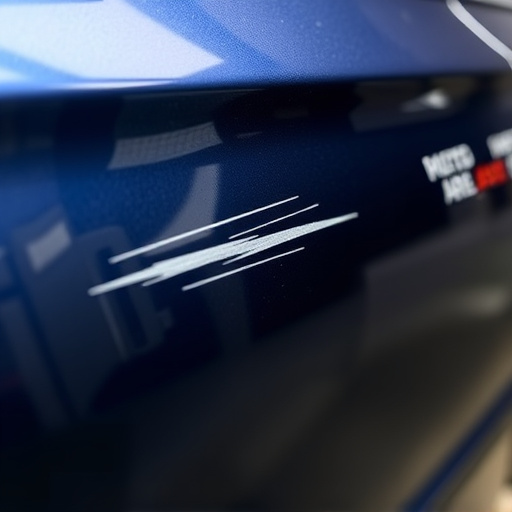
When it comes to collision center warranty agreements, navigating disputes effectively is paramount for maintaining customer satisfaction and preserving the integrity of the business. In such scenarios, both parties—the collision center and the customer—have specific rights and responsibilities. The warranty agreement should clearly outline these, ensuring transparency from the outset. This includes defining what constitutes a valid claim, the process for submitting repairs, and the timeline for resolution.
For instance, a collision center providing car paint services or paintless dent repair must be accountable for any defects in their work. Customers relying on these automotive body work services deserve prompt attention to disputes, fair compensation for any inconvenience caused, and assurance that the issue will be rectified without undue delay. Effective dispute navigation fosters trust, encouraging customers to engage with collision center warranties knowing they are protected.
Collision center warranty agreements are a complex interplay of consumer protection, contractual terms, and legal obligations. By understanding these considerations, collision centers can ensure fair practices, build trust with customers, and maintain their reputation in an industry where transparency is key. Legal compliance not only protects businesses but also empowers consumers to make informed decisions about their vehicle repairs, fostering a harmonious relationship between service providers and clients.
